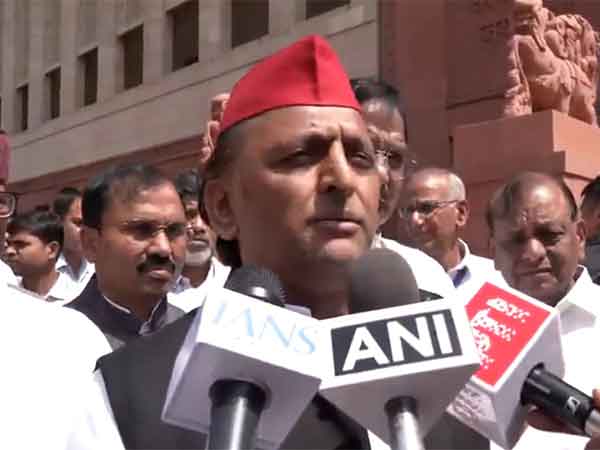
The unrest began when protesters burned an effigy of Aurangzeb and called for the demolition of his 17th-century tomb, located in Chhatrapati Sambhaji Nagar, approximately 500 kilometers from Nagpur. The situation deteriorated after rumors circulated that religious items, including a 'chadar' with Quranic inscriptions, had been burned during the protests. This led to further unrest, with groups marching near the Mahal area and reportedly throwing stones at the police.
In response to the violence, Samajwadi Party chief Akhilesh Yadav criticized the Bharatiya Janata Party , alleging that their actions were endangering religious sites and fostering communal discord. Speaking at an Iftar event in Lucknow, Yadav stated, "Slowly, not just mosques but all religious sites will be under threat due to the BJP's conduct. Even our Kedareswar Temple has become a problem for them." He further accused the BJP of creating conflicts around religious places to divert attention from pressing issues such as law and order, unemployment, and economic distress.
Maharashtra's Chief Minister, Devendra Fadnavis, condemned the violence and emphasized the importance of maintaining peace and order. He noted that the clashes began after "rumors were spread that things containing religious content were burnt" by the protesters, referring to the Quran. Fadnavis urged citizens not to believe in unverified information and assured that strict action would be taken against those responsible for inciting violence.
The legacy of Aurangzeb has long been a contentious issue in India. Hindu nationalist groups accuse the Mughal emperor of persecuting Hindus during his reign from 1658 to 1707, although some historians argue that such narratives are exaggerated. The recent release of the Bollywood film "Chhaava," depicting a Hindu warrior's struggle against Aurangzeb, has further intensified these debates, with critics claiming the movie feeds into divisive narratives that risk exacerbating religious rifts in the country.
Nagpur, the epicenter of the recent violence, holds significant political importance as the headquarters of the Rashtriya Swayamsevak Sangh , an organization ideologically aligned with the BJP. The city's communal fabric has been strained in recent years, reflecting broader national tensions between Hindu and Muslim communities.
In the aftermath of the clashes, law enforcement agencies have arrested over 50 individuals involved in the violence. Authorities have also increased security measures in sensitive areas to prevent further escalation. The imposition of the curfew aims to restore order, with officials closely monitoring the situation.
The events in Nagpur have sparked a broader debate about the politicization of historical figures and their impact on contemporary communal relations. Critics argue that focusing on contentious historical narratives diverts attention from pressing socio-economic issues and undermines efforts to promote unity and development.
